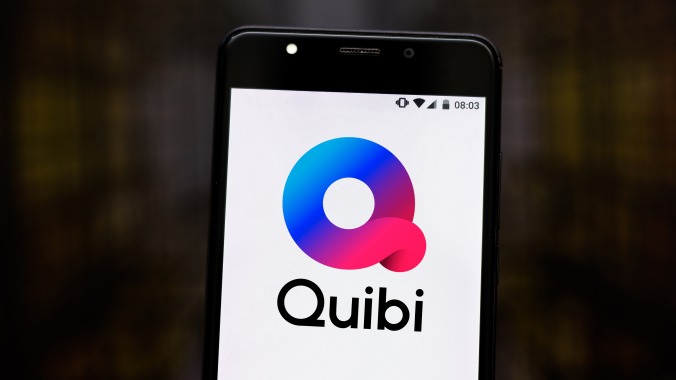Writer claims Quibi—yes, that Quibi—rejected all of his pitches

Last week, after months of somehow operating despite an obvious lack of interest from basically everyone with a phone, Quibi’s creators finally decided to pull the plug. Would Quibi have succeeded if it hadn’t launched during a global pandemic? Probably not. But at least we have this hilarious story penned by Joel Stein, who reveals in an essay for The Hollywood Reporter that he is very likely the only writer who couldn’t sell a pitch to Quibi—a company that produced shows like Dishmantled, which Stein describes as “a cooking show in which chef contestants dress in hazmat suits and get shot with liquid versions of a dish they have to figure out how to create.” The humorous tone of the essay may suggest otherwise, but Dishmantled is indeed a real Quibi and that is its actual premise.
Stein describes three ideas he pitched to Quibi execs, and all of them sound as watchable as anything else on the app—if not more so:
Drunk vs. Stoned (people first smoke weed and then drink whiskey to determine which substance most limits their ability to drive a truck, navigate an escape room and recite a poem); Inside the Phone (record a celebrity’s screen for 24 hours and edit it down to 10 minutes with their commentary); or my scripted film Revenge of the Jocks (the sales team takes over Facebook from the power-mad, mean and sexist engineers).
Like, those aren’t bad ideas. Stein takes an admission that might sound like a self-own and transforms it into a dryly comedic prodding at the corpse of a company that obviously didn’t act in its own best interests because its interests were shit to begin with. Behold, Stein’s description of his first meeting with the Quibi people:
When I entered the conference room, however, the Quibi execs pulled some sales judo, insisting on first telling me all about the company. I learned that Quibi means “quick bite” and that young people have small portions of time — for instance, when waiting for an elevator, which the exec explained, I had just done — that they could use to watch a couple of minutes of a new big-budget film or TV series. After all, he explained, while The Da Vinci Code was 464 pages long, it was broken up into chapters. I considered explaining that people look at their phones because they’re anxious and want to scroll through distractions, which is why no one reads books, which require attention. I also considered pitching them my last book, which I knew was just their thing because it, too, was split into chapters.
This is all very funny, now let’s never talk about this thing again.